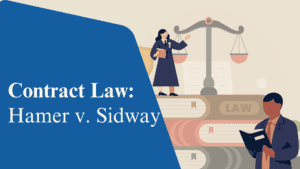
Keywords: Constitutional Rights, Bill of Rights, Due Process, search and seizure, right to remain silent, warrant, probable cause, self-incrimination, double jeopardy, right to lawyer, grand jury, witness
1. Bill of Rights and Due Process Protection
The Bill of Rights consists of the first ten amendments to the United States Constitution and forms the foundation of constitutional rights in criminal proceedings.
The Bill of Rights provides due process protection to all individuals. Under due process protection, everyone is presumed innocent until it has been proven otherwise. The Fourth, Fifth, Sixth, and Eighth Amendments from the Bill of Rights also offer specific procedural guarantees for police investigations, trial and appeal processes. Furthermore, the Fourteenth Amendment extends due process protections to criminal proceedings in state courts.
What is due process?
Due process is the legal requirement that the government must respect all legal rights granted to a person. An example would be the government being required to respect the Fifth Amendment, which is the suspect’s right to remain silent.

2. The Fourth Amendment (unreasonable search and seizure)
The Fourth Amendment to the U.S. Constitution provides the right to be free from unreasonable search and seizure. Under the 4th Amendment, police officers must have a warrant or probable cause in order to arrest an individual or search their property.
What do “search and seizure” protections under the 4th amendment include?
The “search and seizure” protections under the 4th Amendment consist of (1) seizure of a person or his/her properties, and (2) searches of a person or his/her properties.
(1) Seizures of a person or properties include:
a. Arresting an individual
b. Entering a house to arrest the owner of the house
b. Stopping an individual for police questioning
c. Placing an individual’s vehicle or personal items under police control
(2) Searches of a person or properties include:
a. Searching a vehicle for evidence of crime
b. Entering a house to search for evidence of crime
c. Entering a company to search for evidence of crime
What is a warrant?
A warrant is a writ (written command) issued by a judge or magistrate authorizing police officers to conduct search, seizure, and arrest. Common types of warrants include search warrants, arrest warrants, and execution warrants.
What is probable cause?
Probable cause is defined as reasonable grounds for law enforcement officers to believe that (1) someone has committed a crime, or (2) criminal evidence exists. Probable cause can be used to justify “search or seizure” without a warrant when under exigent (requiring immediate action) circumstances.

3. The Fifth Amendment (self-incrimination, double jeopardy, grand jury, due process law)
The Fifth Amendment provides protections over an individual’s (1) privilege against self-incrimination, (2) right against double jeopardy, (3) right to a grand jury, and (4) due process law when it comes to criminal proceedings.
(1) Privilege against self-incrimination: “No one shall be compelled in any criminal case to be a witness against himself.” This is also known as the right to remain silent.
(2) Right against double jeopardy: “No one shall be subject for the same offense to be twice put in jeopardy of life or limb.” In plain English, this means that an individual shall not be prosecuted for the same crime more than once.
(3) Right to a grand jury: “No person shall be held to answer for a capital, or otherwise infamous crime, unless on a presentment or indictment of a grand jury.” A grand jury is a group of citizens selected to investigate potential criminal conduct and determine whether to charge an individual with a crime.
(4) Due process law: ”No one shall be deprived of life, liberty, or property, without due process of law.” Due process is the legal requirement that the government must respect all legal rights that are granted to a person.

4. The Sixth Amendment (lawyer, jury trial, witness, speedy trial)
The Sixth Amendment guarantees four rights to individuals charged with criminal offenses: (1) the right to a speedy and public trial, (2) the right to an impartial jury trial, (3) the right to confront witness, and (4) the right to a lawyer.
(1) The right to a speedy and public trial: “the accused shall enjoy the right to a speedy and public trial.” All individuals charged with criminal offenses should have the right to a public trial without unnecessary deferral.
(2) The right to an impartial jury trial: a Jury is a group of citizens selected to render an impartial verdict based on the evidence. Everyone is entitled to an impartial jury trial of his/her peers, as expressed through the 5th amendment: “The accused shall be tried by an impartial jury of the state and district wherein the crime shall have been committed.”
(3) The right to confront witness: “the accused shall enjoy the right to be confronted with the witnesses against him and to have compulsory process for obtaining witnesses in his favor.” A criminal defendant has the right to ask any witnesses to attend the trial and to question and cross-examine them.
(4) The right to a lawyer: “the accused shall enjoy the right to have the assistance of counsel for his defense.” If a criminal defendant is unable to afford a lawyer, he/she can require the government to appoint one or to pay for the legal expenses.
One of the cheapest VPN provider around!
5. The Eighth Amendment (excessive bail and fines, cruel punishments)
“Excessive bail shall not be required, nor excessive fines imposed, nor cruel and unusual punishments inflicted.” The Eighth Amendment of the United States protects people from excessive fines, excessive bails and cruel punishments.
What is bail and bail bond?
Bail is the temporary release of someone charged with criminal offenses on the condition that they will appear at trial when required. Bail often involves a bail bond, which is a monetary or property deposit made to the court to ensure that the suspect will appear at the trial.
Under the 8th Amendment, the bail bond should not be an excessive amount. Instead, it should be just enough to ensure that the defendant returns to trial.
6. The Fourteenth Amendment
Section One of the Fourteenth Amendment states: “…nor shall any State deprive any person of life, liberty, or property, without due process of law.“
In the past, the U.S. Supreme Court considered the Bill of Rights to only apply to the federal government. After the passage of the 14th Amendment, the U.S. Supreme Court now finds that the Bill of Rights extends extended to only apply from the federal government to state governments. The 14th amendment also requires the state government to guarantee due process of law when it comes to criminal proceedings.


Comments
You got a very great website, Glad I detected it through yahoo.
Pingback: The Pre-Trial Process - CovertProfession
Pingback: Ten Defenses to Criminal Liability - CovertProfession
Pingback: Jurisdiction over crimes - CovertProfession